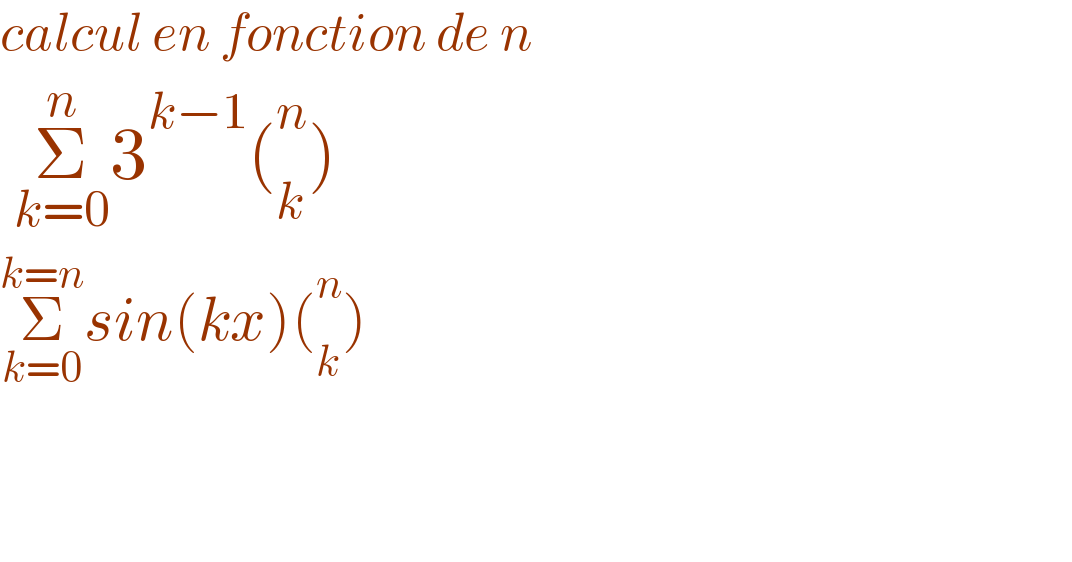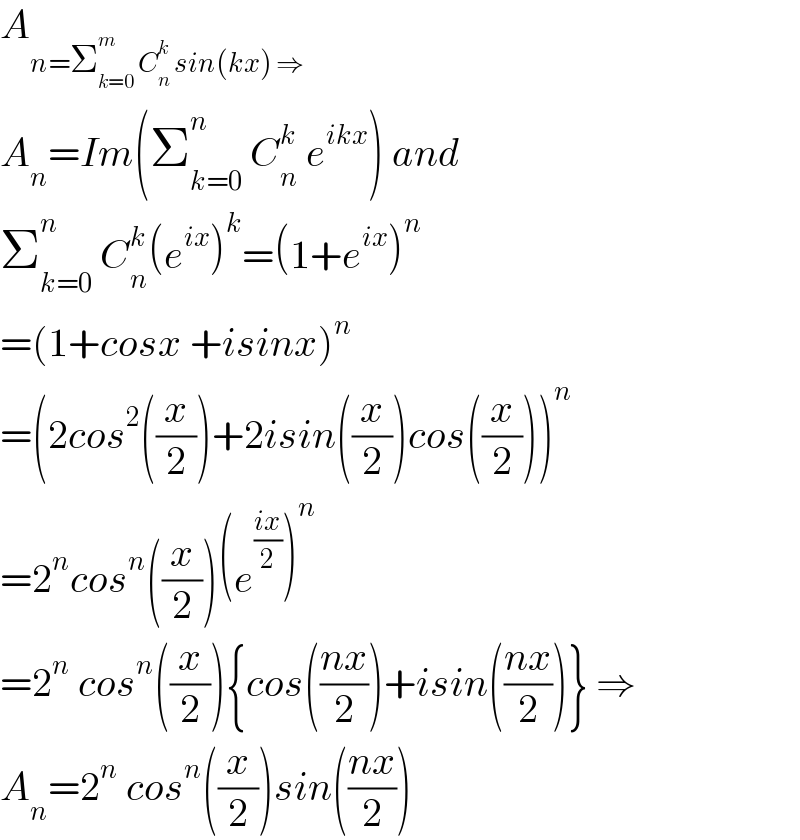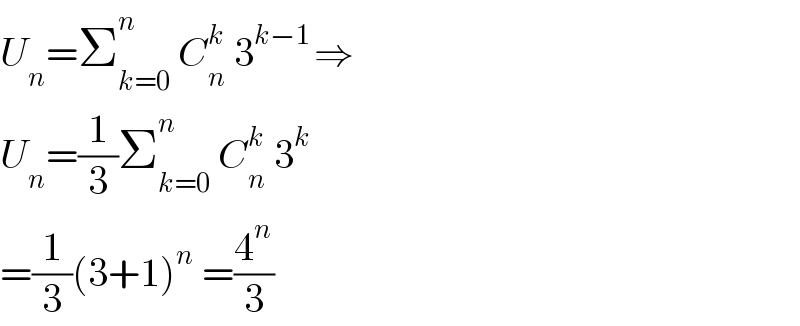
Question and Answers Forum
Question Number 163111 by SANOGO last updated on 03/Jan/22

Answered by Mathspace last updated on 04/Jan/22

Commented by SANOGO last updated on 04/Jan/22

Answered by Mathspace last updated on 04/Jan/22

| ||
Question and Answers Forum | ||
Question Number 163111 by SANOGO last updated on 03/Jan/22 | ||
 | ||
Answered by Mathspace last updated on 04/Jan/22 | ||
 | ||
| ||
Commented by SANOGO last updated on 04/Jan/22 | ||
 | ||
Answered by Mathspace last updated on 04/Jan/22 | ||
 | ||
| ||